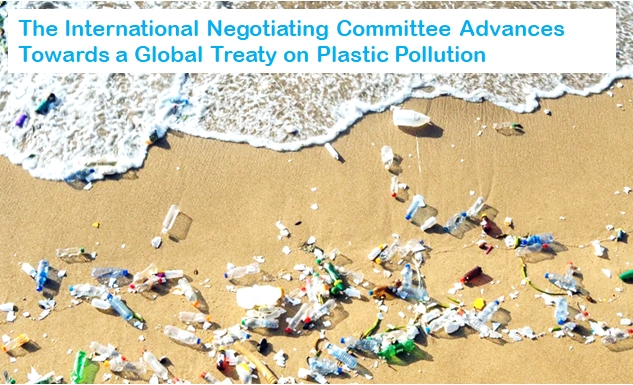In the recent third session of the International Negotiating Committee (INC) on Plastic Pollution, held in Nairobi, Kenya, from November 13 to 19, UN Member States made a significant decision to move forward with the preparation of a draft treaty text. This development marks a crucial step in the ongoing efforts to establish a comprehensive and legally binding global agreement on plastic pollution, a process initiated in March 2022. Full-fledged textual negotiations are now slated to commence at the next INC meeting scheduled for April 2024 in Canada.
Taking a prominent role in addressing the global plastic crisis, the European Union (EU) has demonstrated its commitment by supporting the formation of the High Ambition Coalition to End Plastic Pollution. This coalition advocates for an ambitious and effective treaty that covers the entire lifecycle of plastics, aiming to eradicate plastic pollution by 2040.
Commissioner for the Environment, Oceans, and Fisheries, Virginijus Sinkevičius, emphasised the urgent need for international collaboration, stating, “Plastic pollution is increasingly polluting our planet, and it doesn’t stop at borders. The plastic crisis can only be halted when the global community comes together to take ambitious measures. The outcome of last week’s meeting in Kenya is an important step towards a global agreement which will benefit nature, biodiversity, and public health in Europe and worldwide.”
In parallel to these international initiatives, the European Commission has put forward new regulations addressing plastic waste, including plastic packaging and microplastics. These proposed rules align with the EU’s Circular Economy Action Plan under the European Green Deal.
Providing context, the prevalence of plastic materials in our daily lives has raised environmental concerns due to the harmful production, use, and disposal practices associated with them. In 2021, the average person in the EU generated 35.9 kg of plastic packaging waste, with a recycling rate of only 39.7%. Notably, plastic waste continues to rise, and projections indicate a tripling of plastic production by 2060. Over the decade from 2011 to 2021, the per capita amount of plastic packaging waste generated in the EU increased by 26.7%. These developments underscore the pressing need for comprehensive and coordinated global efforts to address the challenges posed by plastic pollution.
Irish Samachar English News


Comments are closed.